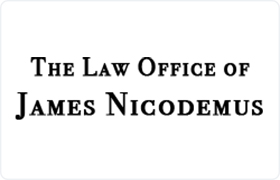Midlothian Real Estate Lawyer, Illinois
Sponsored Law Firm
-
 x
x

Click For More Info:
-
The Law Offices of James Nicodemus
2700 Patriot Blvd Suite 250 Glenview, IL 60026» view mapReal Estate Law Experienced Real Estate Lawyer
When you need accurate representation, whether it’s a divorce lawyer, family lawyer or child custody attorney, James Nicodemus is there for you.
800-986-5891
James Anthony Podgorny
Divorce & Family Law, Real Estate, Felony, Car Accident, Wrongful Death
James A. Podgorny is a sole practicing attorney, which means he will be the only attorney you will deal with at the firm. You will not be shuffled amo... (more)
Christine Burmila
Real Estate, Wills & Probate, Trusts, Estate
Status: In Good Standing Licensed: 40 Years
Paul A Smolinski
Condominiums, Estate Administration, Estate Planning, Elder Law
Status: In Good Standing Licensed: 38 Years
Joseph John Cardinal
Commercial Real Estate, Estate, Family Law, Bankruptcy & Debt
Status: In Good Standing
Joseph Cardinal
Commercial Real Estate, Estate, Family Law, Bankruptcy & Debt
Status: In Good Standing
Matthew Martin Welch
Land Use & Zoning, Estate Planning, Employee Rights, Transactions
Status: In Good Standing Licensed: 17 Years
Peter John Bilanzic
Real Estate, Social Security, Corporate, Personal Injury
Status: In Good Standing Licensed: 45 Years
Peter Bilanzic
Real Estate, Social Security, Corporate, Personal Injury
Status: In Good Standing Licensed: 45 Years
Russell Kazda
Real Estate, Lawsuit & Dispute, Estate, Accident & Injury
Status: In Good Standing Licensed: 13 Years
 James Nicodemus Glenview, IL
James Nicodemus Glenview, IL AboutThe Law Offices of James Nicodemus
AboutThe Law Offices of James Nicodemus Practice AreasExpertise
Practice AreasExpertise

